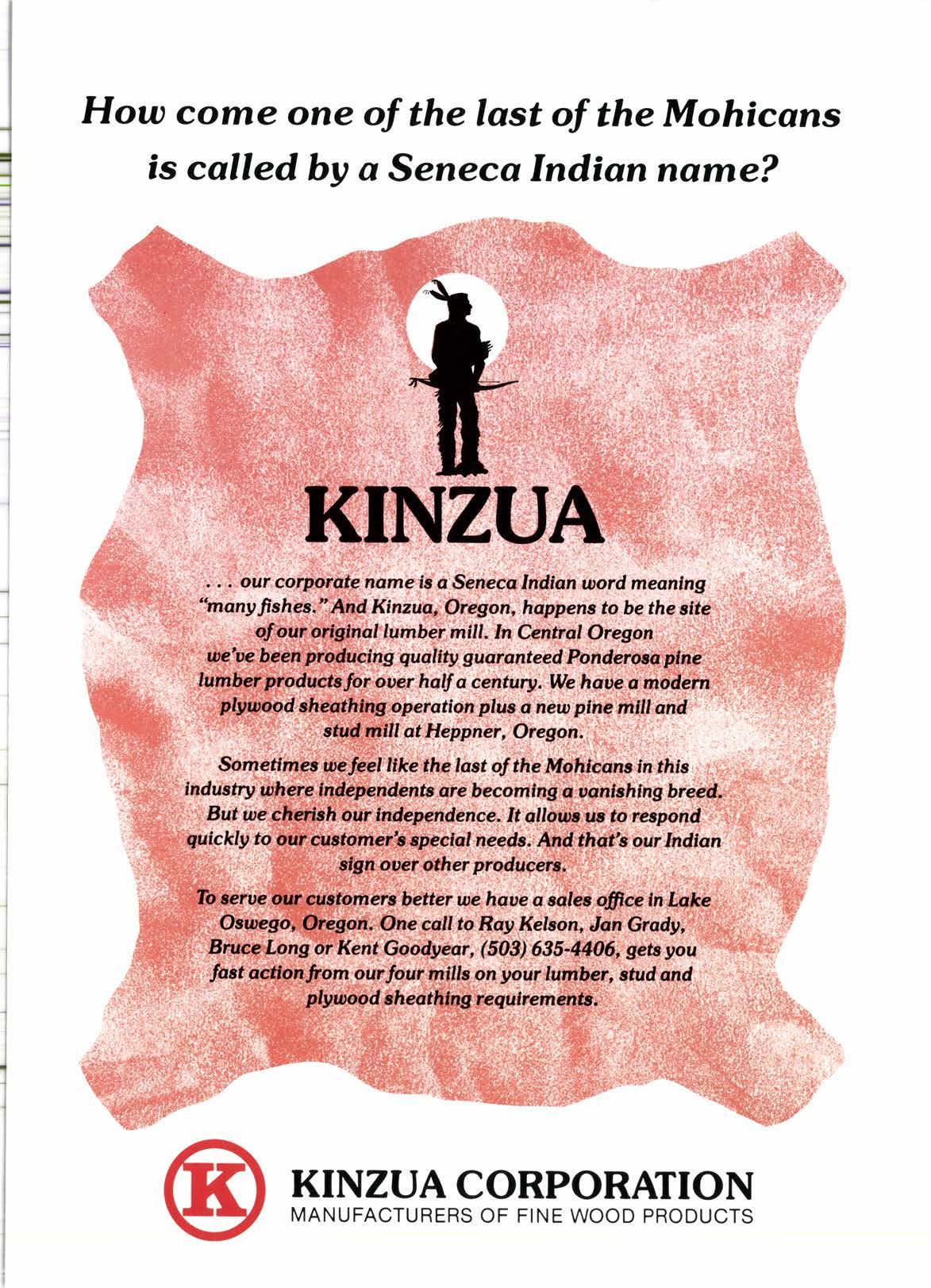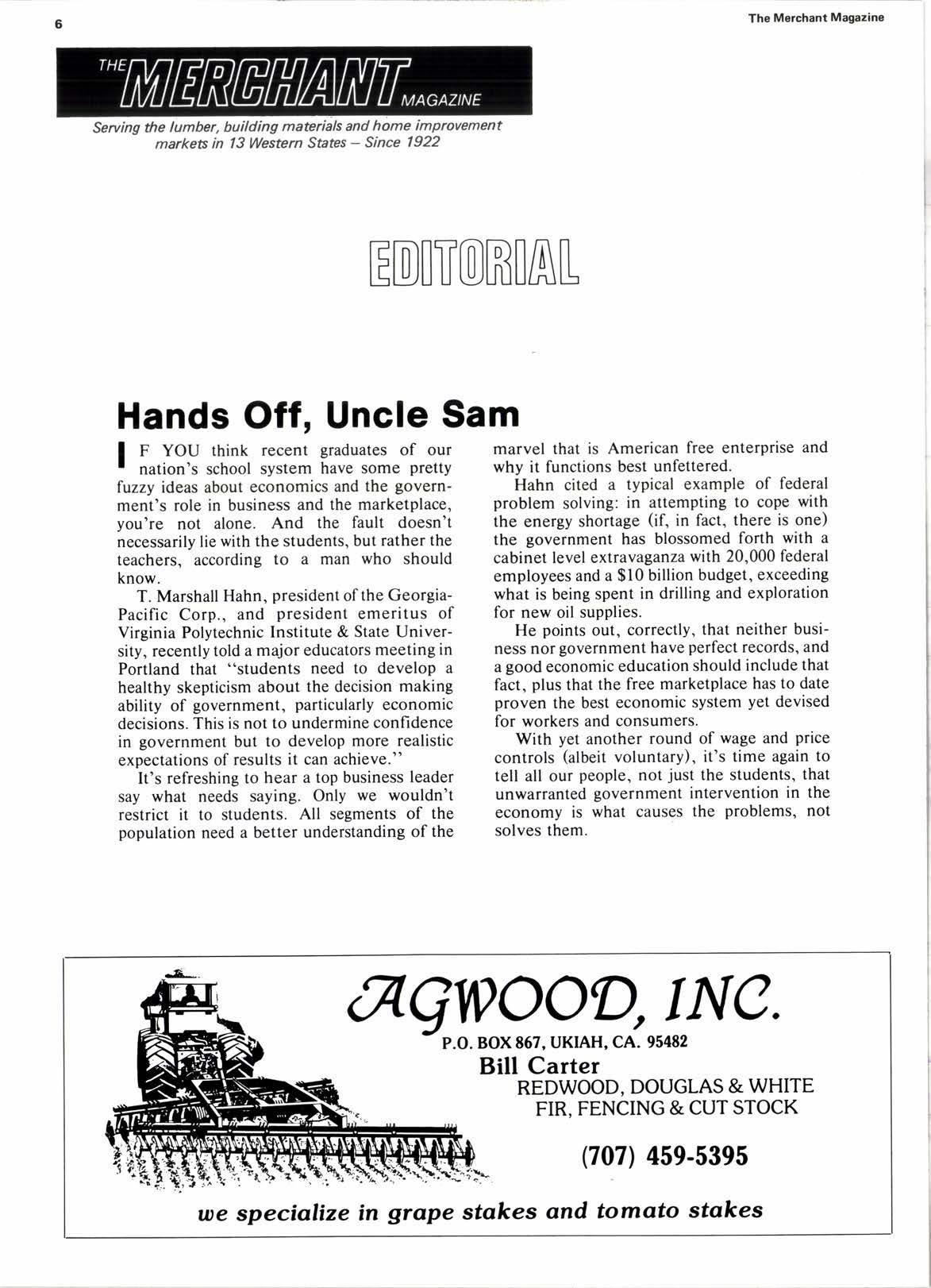
1 minute read
KINZUA
. our corporate name is o Seneca Indian word meaning "many fishes," And Kinzua, Oregon, happens to be the site of our original lumber miII. In Central Oregon we'ue been producing quality guaranteed Ponderosa pine Iumber productslor ouer hof a century. We have a modern plywood sheathing operation plus a new pine mill and stud mill at Heppner, Oregon.
Sometimes weteel like the last of the Mohicans in fhis industry where independents are becoming a uanishing breed. But we cherish our independence. It allows us to respond quickly to our customer's special needs. And that's our Indian sign ouer other producers.
To serue our customers better we haue o soles offce ln Lake Oswego, Oregon. One call to Ray Kelson, Jan Grady, Bruce Long or Kent Goodyear, (503) 635-4406, getsyou fast actionfrom ourtour mills on your lumber, stud and plywoo d sh e othing r e qulrem ents.
Hands Off, Uncle Sam

I f VOU think recent graduates of our I nation's school system have some pretty fuzzy ideas about economics and the government's role in business and the marketplace, you're not alone. And the fault doesn't necessarily lie with the students, but rather the teachers, according to a man who should know.
T. Marshall Hahn, president of the GeorgiaPacific Corp., and president emeritus of Virginia Polytechnic Institute & State University, recently told a major educators meeting in Portland that "students need to develop a healthy skepticism about the decision making ability of government, particularly economic decisions. This is not to undermine confidence in government but to develop more realistic expectations of results it can achieve."
It's refreshing to hear a top business leader say what needs saying. Only we wouldn't restrict it to students. All segments of the population need a better understanding of the marvel that is American free enterprise and why it functions best unfettered.
Hahn cited a typical example of federal problem solving: in attempting to cope with the energy shortage (if, in fact, there is one) the government has blossomed forth with a cabinet level extravaganza with 20,000 federal employees and a $10 billion budget, exceeding what is being spent in drilling and exploration for new oil supplies.
He points out, correctly, that neither business nor government have perfect records, and a good economic education should include that fact, plus that the free marketplace has to date proven the best economic system yet devised for workers and consumers.
With yet another round of wage and price controls (albeit voluntary), it's time again to tell all our people, not just the students, that unwarranted government intervention in the economy is what causes the problems, not solves them.











